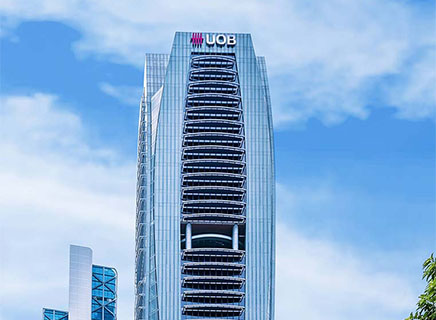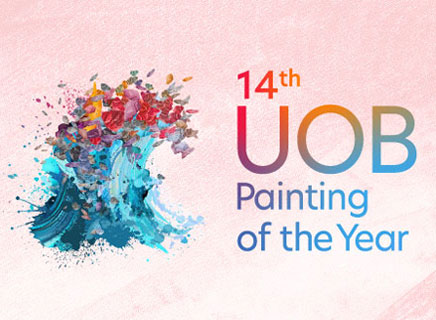News Release - 17 February 2021
UOB survey shows flexible work arrangements are essential for people to achieve work-life balance as part of the new norm
Eight in 10 Malaysian employees expect work-life balance to improve as working from home regularly becomes a permanent option
Kuala Lumpur, Malaysia, 17 February 2021 – As the majority of Malaysia’s workforce continues to work from home, the UOB ASEAN Consumer Sentiment Study1 has found that flexible work arrangements are critical to achieving work-life balance as part of new working norms post-COVID-19.
More than eight in 10 Malaysia employees polled (81 per cent) expect that work-life balance will improve as working from home regularly becomes a permanent work option. Seventy-four per cent of respondents also expect their productivity will improve as they have greater freedom over how they manage their working hours. However, the firmness of this view varied significantly across the different age groups2. The belief that the flexibility to manage one’s own working hours will result in higher productivity was most strongly-held by Generation Z (87 per cent) and Generation Y (78 per cent) employees. In comparison, 67 per cent of Generation X respondents shared the same opinion.
The UOB ASEAN Consumer Sentiment Study also found that nine in 10 Malaysia employees expect flexible working arrangements to become more common in a post-COVID-19 environment. The sentiment was highest among Generation X (94 per cent), followed by Generation Y (88 per cent) and Generation Z (87 per cent). The expectation that flexible working arrangements will continue post-pandemic is unsurprising given that more than one in two employees (55 per cent) in Malaysia expressed satisfaction in their employers with regards to providing flexible work arrangements during the pandemic. This percentage is the highest level of satisfaction among the five ASEAN countries3 covered in the study.
Malaysians employees’ optimism over the future of work-life balance comes despite their bleaker sentiments on the impact of COVID-19 on job security. The UOB ASEAN Consumer Sentiment Study found that nine in 10 employees in Malaysia (90 per cent) feel they need to work longer hours to avoid losing their jobs. A similar trend was also seen across other ASEAN markets surveyed including Indonesia (92 per cent), Thailand (87 per cent), Singapore (89 per cent) and Vietnam (90 per cent).
Mr Lai Tak Ming, Executive Director and Country Head of Human Resources, UOB Malaysia, said the pandemic has changed how organisations function. The changes made and the lessons learnt during the health crisis will continue to shape the future of work and the workplace in a post-COVID-19 world.
“In the past year, we’ve seen organisations and employees adjust to a new working environment after the pandemic hit. Employees moved from working in an office to a makeshift home office, while audio and video conference calls replaced face-to-face meetings. Although at first regarded as temporary measures in response to the threats of the pandemic, remote work is now part of the new working norm.
“Organisations are rethinking the future of work and the workplace, including exploring the best ways to help employees maintain work-life balance while improving productivity and engagement. At UOB Malaysia, we have been developing a hybrid working model in which employees in eligible roles can have the flexibility to work either in the office or remotely once the COVID-19 pandemic has passed. The Bank is testing scenarios, redesigning its physical workspaces and enhancing its digital infrastructure to ensure its people continue to remain productive and connected with each other in this new normal of work. To support the success of our people, the Bank has also planned virtual engagement sessions to prepare them for the transition and creating training programmes to enable managers to lead teams in a hybrid work environment,” Mr Lai said.
Prioritising the well-being of employees
The impact of COVID-19 on people’s lives has also given rise to concerns about their well-being with three in five Malaysia residents (60 per cent) worried about their mental health and happiness. In addition, 76 per cent of Malaysia employees believe their employers will pay more attention to their staff’s well-being as a result of the lessons of COVID-19.
Among these respondents, those between the age of 18 to 23 years old (69 per cent) and 24 to 39 years old (65 per cent) expressed the greatest concern over their emotional well-being. These two groups of respondents also have the strongest view4 that their employers will focus more on workforce well-being.
“As we each do our part to contain the spread of COVID-19 by staying safe at home, the isolation over the past year may have taken a toll on our mental and emotional well-being. At UOB Malaysia, we have put in place several initiatives to help our people to cope and to boost their morale. This includes setting up an online professional counselling service known as the UOB care-line to provide our colleagues with mental and emotional support as and when they need it. The same hotline is also available for immediate family members of our colleagues,” Mr Lai said.
1 The survey was conducted by UOB and Blackbox in July 2020 among 3,510 individuals aged between 18 to 65 years old across five ASEAN markets including 1,000 from Singapore and more than 600 each in Indonesia, Malaysia, Thailand and Vietnam.
2 The UOB ASEAN Consumer Sentiment Study defines the age group for each generation as the following: Generation Z (aged 18 to 23), Generation Y (aged 24 to 39), and Generation X (aged 40 to 55).
3 The other countries are Indonesia (53% of employees satisfied with employers’ support for flexible working arrangements), Thailand (51 per cent), Singapore (45 per cent) and Vietnam (51 per cent). The overall figure is 51 per cent.
4 Eighty-three per cent of respondents between the age of 24 to 39 years old and 85 per cent of young professionals believe that their employers will focus more on their staff’s well-being.




